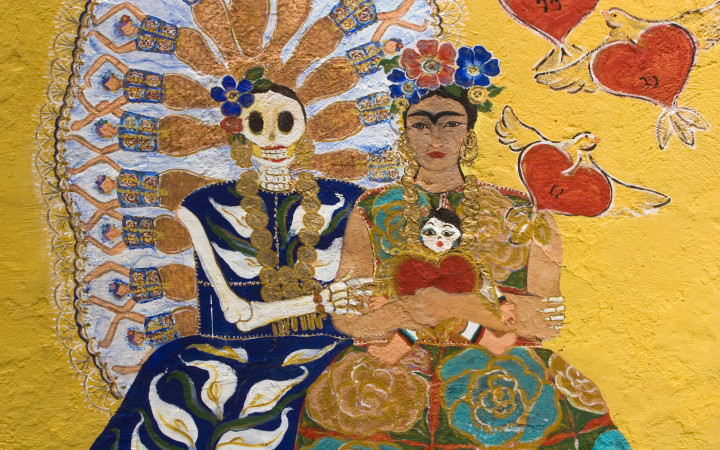Today’s Wonder of the Day was inspired by Stephanie. Stephanie Wonders, “What is heritage and why is it important?” Thanks for WONDERing with us, Stephanie!
Who are you? You might start to answer that question with your name. But, of course, you’re much more than a name. What are your talents? How about your dreams or your values? All of these things (and many others) come together to make up your identity.
Today’s Wonder of the Day is about something else that shapes your identity—your heritage. What is heritage? The word can be difficult to define! Heritage is always something that’s or passed down by families or other groups for many years.
However, heritage isn’t limited to concrete objects. It’s also the customs, traditions, and values shared by groups of people. One way to think about heritage is to break it down into three groups. These are the tangible, the natural, and the intangible.
What tangible items can be part of a person or group’s heritage? It can include many human-made objects that hold cultural value. Some examples are national monuments and works of art. Many ancient sites are also part of this group. On a smaller scale, a family home can be part of an individual’s heritage.
Many parts of the natural world are also important to cultural heritage. This can include bodies of water, plant life, landforms, and more. One example is the Nile River. It has been part of cultural heritage in many African nations for centuries. Efforts to protect natural heritage are key in many cultures.
The intangible group includes any part of cultural heritage that you can’t feel through touch. Maybe you’ve read about forms of dance, like flamenco dancing. You might know about the music of mariachi bands or holidays like Eid. These are all examples of intangible heritage. Languages, holidays, and customs also make the list.
Exploring your own heritage can be fun. It can help you learn about yourself, your family, and your ancestors. But it’s also important to learn about the heritage of others. Doing so can help you build a stronger understanding of other cultures. It can also lead you to find things you may have in common with others!
You may already know that certain months of the year honor specific cultures. For example, September is Hispanic Heritage Month. Are you of Hispanic heritage? If so, it’s a great time to be with family and celebrate your culture.
If you’re not part of a Hispanic culture, then September is a time to learn. Try reading about the Grito de Dolores or the tradition of the quinceañera. Learn about famous people of Hispanic heritage, like Frida Kahlo. You could also attend public Hispanic heritage celebrations as a learner. Always remember to show respect for the cultural heritage of others. After all, you’d want the same from them.
Of course, there are several other heritage months. American Indian Heritage Month is in November, and Black History Month is in February. May is both Asian/Pacific American Heritage Month and Jewish American Heritage Month. Of course, you don’t have to wait for these times of year. It’s always a great time to celebrate your heritage and learn about those of others.
How would you describe your heritage? If you’re interested in digging deeper, invite a family member to join you. It can be a great learning and bonding experience.
Standards: CCRA.R.4, CCRA.L.3, CCRA.L.6, CCRA.R.10, CCRA.R.2, CCRA.SL.1, CCRA.SL.2, CCRA.W.2, CCRA.W.4, CCRA.R.1, CCRA.L.1 , NCAS.A.1, NCAS.A.2, NCAS.A.3, CCRA.SL.4




